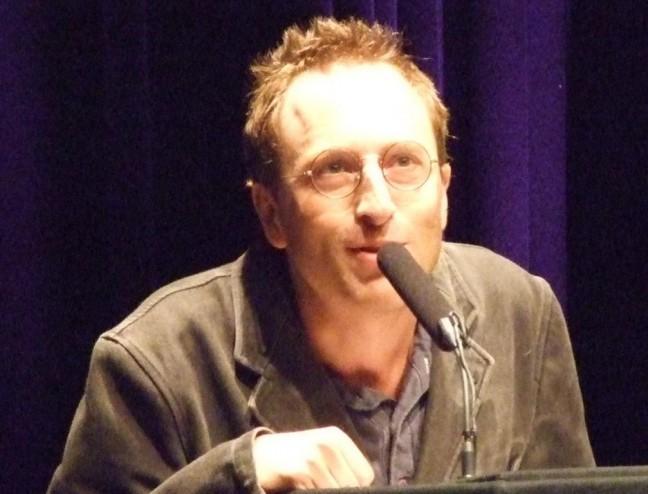Jon Ronson spent the last three years traveling the world, using his skills as a journalist, author, screenplay writer and radio presenter to gather information about individuals who had their lives ruined after they were publicly shamed through social media.
As part of Wisconsin Union Directorate’s Distinguished Lecture Series, Ronson shared his experiences investigating the lives of people who were victimized by people on social media.
In Ronson’s most recently published book, “So You’ve Been Publicly Shamed,” he focuses on the power people have to effectively use social media to shame others for a post or status they made. The meanings of some of the posts were misconstrued and the people who posted them did not have the chance to defend themselves before their livelihoods were ruined.
Ronson recalled an interview with Justine Sacco, a former Public Relations executive at InterActiveCorp, whose life was ruined after one poorly-worded joke about white privilege on her Twitter account. He said it resulted in her termination and public humiliation.
She said the mistake led to a year of depression and anxiety before she finally managed to get her life back together, Ronson said. But people justified her shaming by the fact she was able to get her life back after a year — a psychological trick he said people play on themselves to not feel bad when they shame someone.
Ronson said it always felt too easy for him to write about topics he knew the public would like. For example, a story about a pharmaceutical company overprescribing children’s medication would be important to tell, but also a story society would get behind.
“It’s a bit like a popularity contest to tell all those stories. I know that everyone will like me if I tell those stories, where as I knew telling the Justine Sacco story, it was going to be really uncomfortable for people and not make them like me very much,” Ronson said.
A lot of social media slamming on Twitter can be pretty nasty, and it’s annoying because it lurches toward conformity, Ronson said.
For Ronson the transition from journalist to author and screenwriter was difficult. Ronson said it took him years to adjust to the infinite amount of possibilities available when creating a fictional story. He said the realization he could just make up any idea “freaked” him out.
He said he eventually adjusted to fiction work after practice.
“You can actually learn to do better nonfiction from writing screen plays,” Ronson said.
Moving forward Ronson said he will likely do less journalism work and focus more on a new podcast series he plans to release. He recently submitted several scripts for screen plays, but he is unsure whether he will continue writing them.
Though he did not share the specific plans for his new podcast series, Ronson said it will focus on hurting others through internet communication.


